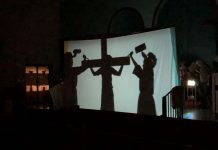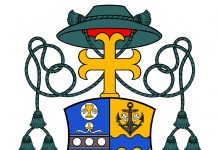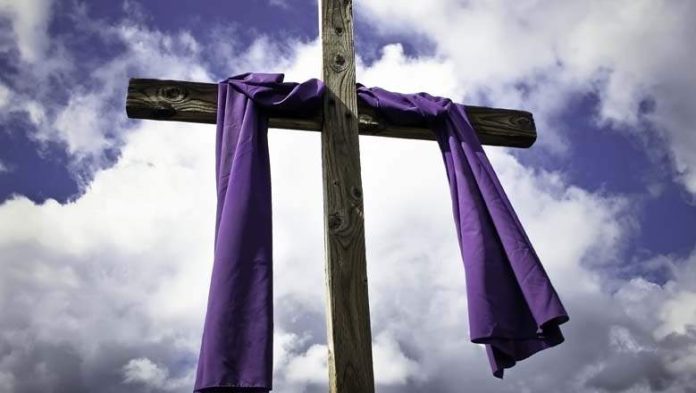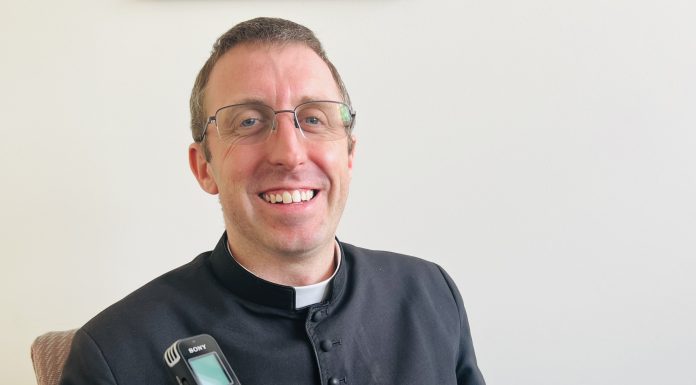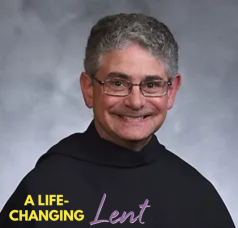 By the Very Reverend Tom Stabile, TOR, VF
By the Very Reverend Tom Stabile, TOR, VF
The word, “lent,” means, “springtime.” The Season is about new life, starting over; second chances. Lent is a Season of six weeks that helps us to prepare for the great Feast of Easter as we allow the grace of God to work with us toward a transformation into Disciples of the Risen Lord. Our keeping of Lent is not just to get us to Easter Sunday, but a journey of faith by which we become a new creation in Christ.
Our Lenten pilgrimage would be most fruitful if when we reach Easter, we have both left behind the “stuff” that God wants us to let go of (bad habits, sinful actions) and have picked up those things that make us more like Christ (a better prayer life, more charitable behaviors). At its heart, Lent is a Season that invites us to be changed, converted, to a life more in keeping with God’s plan for us. Traditionally, there are three key components for Lent: fasting, prayer and charity.
Season of Conversion
It is during this Season that adults who desire to be Baptized or enter Full Communion in the Catholic Church usually complete their final preparations. At the Easter Vigil, they receive the Sacraments of Initiation. In the weeks of Lent, in addition to what other Christian faithful are doing, they are blessed to celebrate other Rites of Christian Initiation, such as the Scrutinies, the Presentation of the Creed and the Presentation of the Lord’s Prayer. All the Baptized are encouraged to celebrate the Sacrament of Reconciliation during Lent so as to be better prepared to celebrate Easter.
Length of the Season
40 Days (from Ash Wednesday up to the Easter Vigil, excluding Sundays – which are enfolded within Lent, but remain celebrations of the Resurrection). 40 days is symbolic of several significant events in the Bible. We recall the 40 days and nights it rained in the time of Noah (Gen 7:4) and the resulting flood that gave humanity a new start. We recall the 40 days and nights that Moses spent on the mountain, after the Exodus from Egypt and entering into the Covenant with the 10 Commandments (Ex 24:18). In the New Testament we are told that Jesus spent 40 days and nights fasting in the desert as he prepared to begin his public ministry (Mt 4:2, Mk 1:13 and Lk 4:2). Finally, in the Acts of the Apostles (1:3) Jesus appeared to his disciples between the Resurrection and the Ascension for a span of 40 days opening the Scriptures for them to understand all the passages that referred to him.
Liturgical color of the Season
Violet. Violet is associated with virtues of humility, sorrow and penance. To distinguish Lent from Advent, the shade of violet for Lent tends to be more reddish (for the Passion of Christ) and for Advent more blueish (for the coming dawn of the Light of the World, Jesus).
Fasting
The word “fast” usually refers to limiting the consumption of food for the sake of self-denial with the intent that as we hunger, we are reminded of the blessings we enjoy and are inspired to be more empathetic toward those who suffer. We can “fast” from other things too, with the same intention, to be more compassionate toward those in need. The self-depriving we also hope will help us to “hunger” and “thirst” more for the grace of God to enter our lives. A cautionary word here…If by giving up something we become miserable and we in turn make those around us miserable, then we are not in sync with what fruits our fasting should bring.
Abstinence
This refers to the tradition of not eating flesh meat on the Fridays of Lent in honor of the fact that our Lord freely gave up his body (life) for our sakes on Good Friday.
Alms
This word refers to giving from what we have to help those who are in need. It could be money or food or time – any act of charity and compassion (to suffer with) another. Fasting and giving of alms can be linked in that what money we save from the food we gave up eating, we can then donate those funds to a food pantry.
Prayer
Spending time communicating with God is prayer. It requires far more than reciting prayers and asking God to give to others or us what we think is needed. Since God wants us to be in relationship with him – he is our Father and we are his children – we also have to make time to listen to him. Prayerfully reading the Scriptures with an open heart and mind to what God wants us to learn from them is a form of listening to God. Spending quite time in the presence of the Blessed Sacrament is also an opportunity to listen to God, as long as we spend that time with the Lord with open hearts and minds. The fruit of prayer is to realize God’s love for us and his calling us to live as disciples of his Son, Jesus. Prayer that is well done should lead us to actions that build up the Kingdom of God.
Ashes
The Season of Lent begins on Ash Wednesday. Though not a Holy Day of Obligation, it is probably one of the most well attended celebrations in the Church calendar year. It seems deep down, we know, for our own good, we need the journey of Lent to help us make needed changes in our lives. The ashes imposed upon the foreheads of those presenting themselves at services on Ash Wednesday should come from the burned palms from the previous Palm Sunday. Remember the story. Jesus entered Jerusalem with the joyful acclaim of the crowds as they covered the streets in front of him with palm branches. However, only a few days later some of those same people shouted, “Crucify him!” How fickle and prone to sin we are. It is appropriate that the palms we used joyfully last Palm Sunday are burned and rubbed into our foreheads, right between our eyes, in the shape of a cross. The gesture reminds us of two important facts: we are mortal and will die, and, God’s grace, mercy and new life are ours for the asking, because of his sacrifice upon the Cross.
Stations of the Cross
This devotion became popular as the faithful who could not go to the Holy Land could vicariously walk with Jesus as he completed his mission on earth. The 14 Stations are from Scripture and Tradition and mark our Lord’s final hours of life. They are prayed each Friday of the Season.
Other Liturgical Differences
No flowers are used to decorate the Church during Lent, except on the Fourth Sunday. To keep a quiet and reflective mood, the songs at our Liturgies ought to be sung without or with little accompaniment. The Gloria is not sung or recited until we celebrate the Easter Vigil. The verse of the Gospel Acclamation is changed so that we do not sing, “Alleluia,” until we celebrate the Easter Vigil. The practice of covering the Crucifix and Statues in Churches with a violet cloth has changed over time, but is still an option from the Fifth Sunday up to the Easter Vigil. It symbolizes that Jesus hid himself when, “They picked up stones to throw at him,” (Jn 8:59), and that because of our sins, we essentially put a barrier between ourselves and the holiness of God and the Saints (represented by the Sacred images). The removing of the coverings for the Easter Vigil reminds us that in his Resurrection, he conquers the power of evil over us, including death. We are, by his Resurrection healed of the separation sin brings and united to the holiness of God’s Kingdom.
On a personal note, it might sound strange, but my best Lent ever was during the shutdown caused by the pandemic. Living alone, I had a lot of time to fast and pray! I knew parishioners wanted to be together in Church, but they could not. In pastoral charity, I called all 840 households in the parish records to see how they were doing and assure them of my prayers for them. I celebrated Mass each day praying for them and for healing for our world. Though I was alone in the Church, I carried the community with me in spirit. Each Friday, I celebrated the Stations of the Cross, while holding the intentions of parishioners in my heart. It was a sort of desert retreat in which I was blessed to be able to focus more clearly on the things that really matter. It was a lesson for me, and I hope for us all, that no matter how difficult it is to do, we must set priorities that include time well spent with God and each other. Lent is a gift to help us do the right thing and we should not wait until a pandemic or other crisis forces us into it.
The Very Reverend Tom Stabile, TOR, VF, is the Pastor of Holy Family Parish in Portage and Dean of the Prince Gallitzin Deanery.




